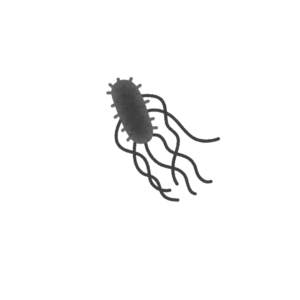Description
A Bachelor of Science (B.Sc) in Zoology is an undergraduate degree that focuses on the study of animals, their behavior, physiology, classification, and ecology. This program provides students with a comprehensive understanding of animal biology and prepares them for various careers in research, conservation, education, and related fields.
Program Overview
Duration: Typically lasts 3 to 4 years, depending on the institution and country.
Mode: Available in full-time, part-time, or online formats to accommodate different learning styles and schedules.
Eligibility: Generally requires a high school diploma or equivalent, often with a focus on biology and chemistry.
Core Curriculum
The curriculum for a B.Sc in Zoology typically includes both core courses and elective modules, covering a range of fundamental topics, such as:
General Zoology: An introduction to animal biology, including taxonomy, anatomy, and physiology of various animal groups.
Animal Behavior: Study of ethology and the behaviors of animals in different environments.
Ecology: Examination of animal interactions with their environment, including population dynamics, ecosystem stability, and conservation biology.
Genetics: Understanding the principles of heredity, genetic variation, and the role of genes in evolution and behavior.
Evolutionary Biology: Exploration of the processes and mechanisms that drive evolution and biodiversity.
Physiology: Study of bodily functions and processes across different animal systems (e.g., respiratory, circulatory, nervous systems).
Entomology: Focus on the biology and ecology of insects, which represent a significant portion of animal diversity.
Field Studies and Laboratory Techniques: Practical experience in zoological research, including fieldwork, specimen collection, and data analysis.
Skills Developed
Analytical Skills: Ability to assess complex biological systems and processes critically.
Research Skills: Experience in designing experiments, conducting field studies, and working with biological data.
Laboratory Techniques: Proficiency in methods used in zoological research, including dissection, microscopy, and genetic analysis.
Communication Skills: Development of skills for effectively communicating scientific findings and concepts to diverse audiences.
Career Opportunities
Graduates with a B.Sc in Zoology can pursue various career paths in academia, research, conservation, and industry. Some potential roles include:
Zoologist: Conducting research on animal species, behavior, and ecosystems, often in laboratories or field settings.
Wildlife Biologist: Studying animals in their natural habitats to inform conservation efforts and wildlife management strategies.
Marine Biologist: Focusing on oceanic ecosystems and the species that inhabit them, conducting research and promoting conservation.
Animal Caregiver/Technician: Working in zoos, aquariums, or veterinary practices, providing care for animals and supporting research.
Conservation Scientist: Engaging in preservation efforts for endangered species and habitats, often working with non-profits or government agencies.
Research and Development: Assisting in biomedical research or pharmaceutical development that involves animal studies.
Benefits of Pursuing a B.Sc in Zoology
Diverse Opportunities: Graduates are prepared for various career paths across multiple sectors, including research, education, and conservation.
Hands-On Experience: Many programs include laboratory work and field studies, offering valuable practical experience.
Scientific Contribution: Graduates contribute to vital areas such as animal conservation, ecosystem management, and medical research.
Additional Considerations
When considering a B.Sc in Zoology:
Accreditation: Verify that the program is accredited by relevant educational bodies or institutions, which can enhance the degree’s value.
Fieldwork Opportunities: Look for programs that offer opportunities for field research, internships, or partnerships with conservation organizations.
Interdisciplinary Studies: Some programs may allow for minors or electives in related fields such as marine biology, ecology, or environmental science, enhancing your education and career prospects.
If you have specific questions about the program, its courses, or potential career opportunities in Zoology, feel free to ask!









